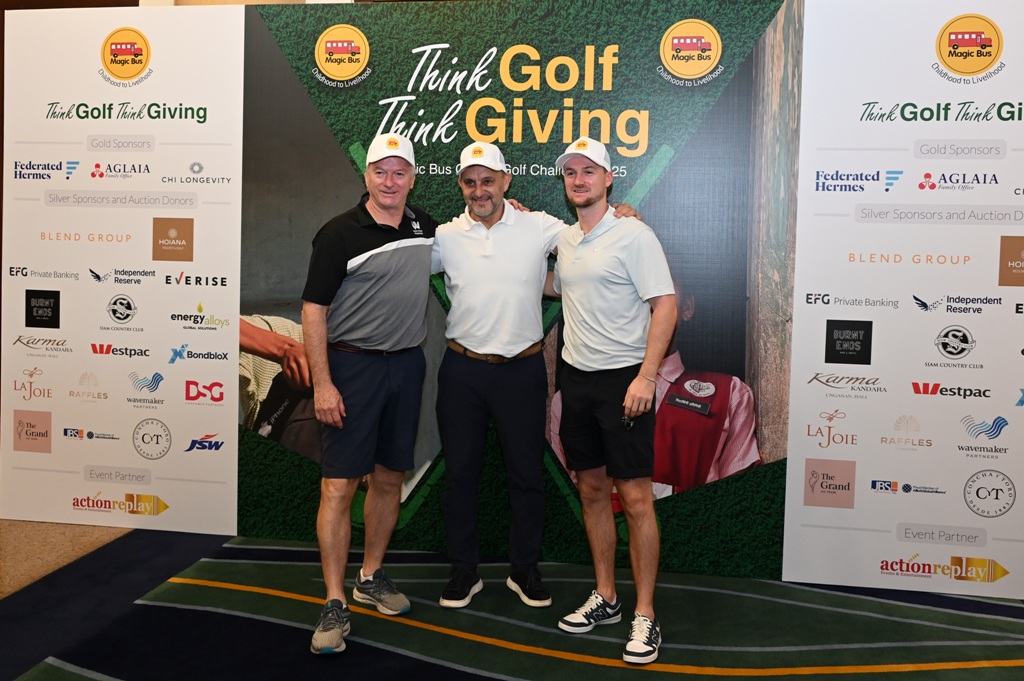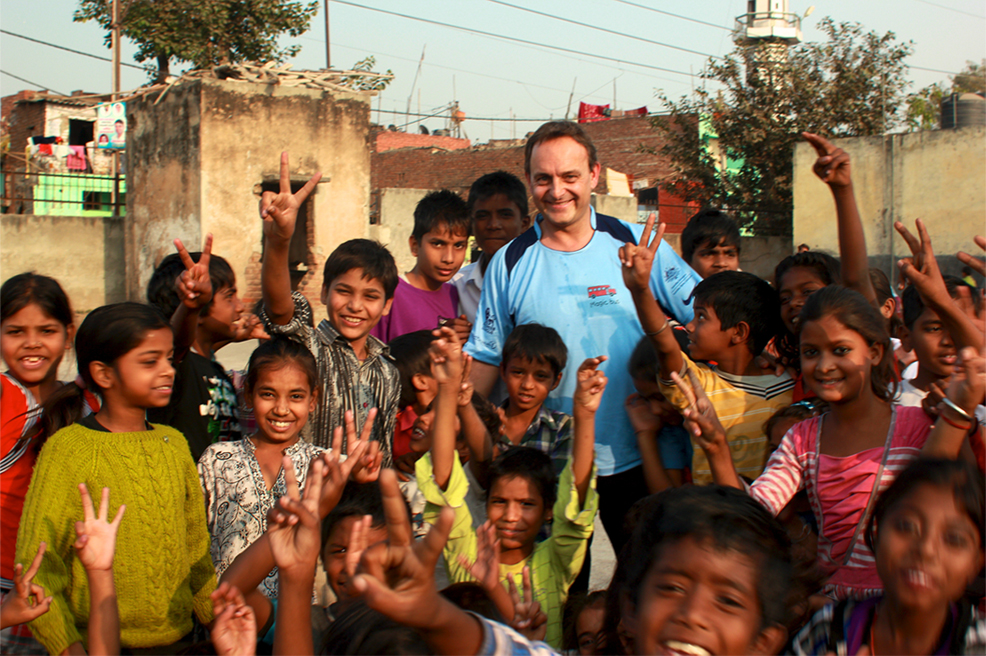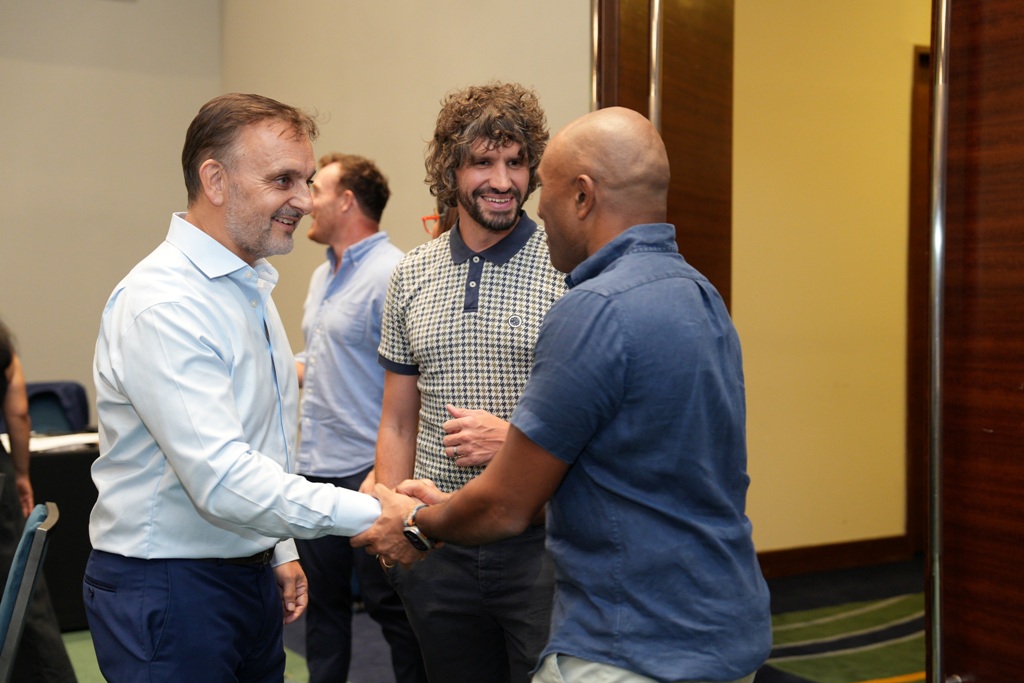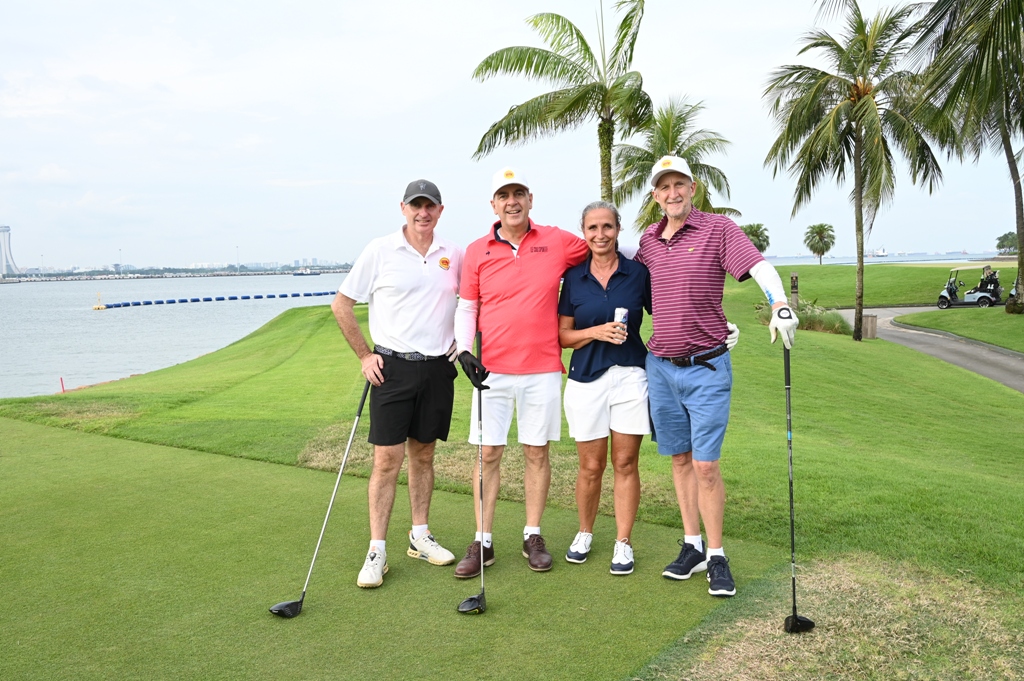The Magic Bus Golf Challenge 2025 teed off in style at the prestigious Sentosa Golf Club — a venue known for hosting the Singapore Open, European Tour co-sanctioned events, and global tournaments like LIV Golf Singapore featuring legends such as Phil Mickelson, Brooks Koepka, Cameron Smith, and Sergio Garcia.

The day was made unforgettable by the presence of Australian cricket legend Steve Waugh, joined by his son Austin. On June 11, over 100 participants came together not just to play, but to support a powerful cause: changing lives through sport.
“Sport teaches resilience, teamwork, and belief — values that can transform young lives,” said Steve Waugh, reflecting the spirit that defined the day.
Matthew Spacie, executive chairman and founder of the India-based NGO Magic Bus, the tournament echoed the core philosophy he began championing decades ago: leveraging sport as a powerful vehicle for social change.
“It was a really lovely way of bringing people together and very related to what we do over in India,” Matthew shared in an exclusive Connected to India interview, reflecting on the spirit and success of the day.

It mirrored the work he started in India decades ago: using sport not just as recreation, but as a tool for social change. “It was a really lovely way of bringing people together and very related to what we do over in India,” he tells me during an exclusive Connected to India interview, reflecting on the event’s success.
As the executive chairman and founder of India-based NGO Magic Bus, Matthew has spent nearly 30 years building a movement that helps children and young people from underserved communities move from childhood to livelihood.
What started with a handful of boys on a rugby pitch in Mumbai has become one of India’s largest poverty-alleviation programmes focused on education, life skills, and employability.
For organisations like Magic Bus, public engagement and fundraising are essential. “When you run a charity, obviously the lifeblood of that charity comes from the money you raised from the public and connecting with the public in a way in a manner that we did… was really good because… you’re feeling it right,” he says.
The funds raised at such events go straight into operations in India, directly impacting the communities Magic Bus serves.
Spacie’s relationship with India began unexpectedly. In the mid-1980s, he travelled to the country with the intent to work around the aftermath of the Bhopal gas tragedy. When that plan fell through, he found himself on a train to Kolkata. There, he met Mother Teresa — now St Teresa of Kolkata — and offered to help.
“I tried to actually get to some work with her, but she doesn’t… she didn’t want males to work with the children and women. So I got assigned to the brothers in Howrah… mornings were in a TB hospital and in the afternoons we had on a leper colony actually. So… it was just amazing what an experience for an 18-year-old,” Matthew says.
That early experience shaped his outlook and deepened his connection to India. Later, while living in Mumbai and working in the corporate sector, he played rugby at the Bombay Gymkhana.
He noticed children from nearby slums watching from beyond the fence and decided to invite them onto the field. “These kids are suddenly walking in their chappals… into the changing room and they’re changing with… the wealthiest of Bombay… and you’re pretty much equal, right?”
This simple act of inclusion led to the founding of Magic Bus in 1999.
ALSO READ: ‘Too much like us’: Steve Waugh praises Virat Kohli after Test retirement
Magic Bus took a bold approach from the start. It avoided mainstream sports like cricket. Instead, it used football and rugby — sports that were then new to many parts of India — as inclusive platforms to deliver structured life skills.
The organisation’s core model is built around local mentors — young people from the same communities, often alumni of the programme — who guide children through their journey. Matthew says, “The whole model was… we use coaches and mentors from the communities where we work… and they then become the change makers.”

The goal is clear: ensure every child stays in school, learns key life skills, and is eventually connected to formal employment. Where schooling infrastructure is weak, Magic Bus has built its own schools. Its Youth Employability Programme connects thousands of young people each year to jobs in sectors ranging from retail and logistics to healthcare and finance.
The scale today is massive. Magic Bus operates in over 20 states across India, partners with over 5,000 schools, and reaches more than a million children annually. It also works closely with state governments and international institutions like UNICEF and the World Bank.
One of the most significant partnerships has been with the Laureus Sport for Good Foundation, which has supported Magic Bus for over two decades. “They’ve actually been… probably our longest relationship we’ve ever had… 23–24 years now of every year them putting significant funds into our work in India,” he adds.
Despite this long-standing support, fundraising remains a constant need. “The amounts we have to raise every year… is enormous,” Matthew admits.
To remain sustainable, Magic Bus draws from a mix of sources — corporate CSR, institutional grants, and individual donors—and continues to expand its global presence, with charitable entities in the UK, US, Germany, Singapore, and India.
Beyond funds, Magic Bus also encourages people to get involved more personally — as mentors, volunteers, or champions of the cause.

At its heart, Magic Bus is about giving young people a chance to break free from the circumstances they were born into. “The ovarian lottery is not being kind, right? So… you’re born where you’re born. But… with these right skills you have this opportunity to… come out of that,” Matthew says.
Both Waugh and Matthew sat for an exclusive interview with Connected to India, wherein they discussed several aspects of the charity, and their respective lives, in detail.


